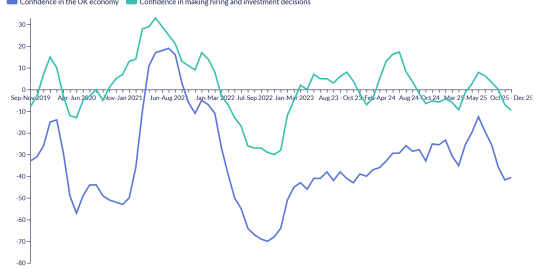Developing the leadership skills of middle managers and equipping them to manage change are among the top learning and development priorities for organisations in 2010, according to the Corporate Learning Priorities Survey 2010 carried out by Henley Business School’s Corporate Development team.
Respondents indicated a significant focus on leadership development in 2010 – particularly at middle management level. They also anticipate focusing on high-potentials as they grow and develop to lead their businesses into an uncertain future with 67% of respondents choosing ‘Managing Change’ as a specific development priority for managers .
The survey, amongst 2,500 HR and learning development professionals, was designed to provide an up-to-date perspective of the learning and development landscape. Over 60% of those completing the survey were HR Directors, Vice-Presidents or Heads of HR or Learning & Development in some of the UK’s largest employers.
Linda Irwin, Executive Director, Corporate Development for Henley Business School, said both the research, and conversations she has with organisations, show many are planning for the long-term, and not making budget cuts they may live to regret:
“Managing Directors, CEOs, HR Directors and Learning & Development professionals have adopted a pragmatic, level-headed, measured approach when faced with the tumultuous economic climate we have endured. As one respondent commented in the survey, his organisation’s priority is to ‘Ride out the storm that has been created by the recession without losing our A teams.’ Rather than axing development budgets and cutting leadership development they have focused effort on those individuals who they expect will lead their organisations into a future yet to be created. Softer skills, in leadership styles and in coaching for instance, that bring out the very best in people and facilitate team working are also a priority.”
Key findings of the Priorities Survey 2010 include:
Leadership development is the most important priority for all respondents. The development of middle managers is considered extremely important with 67% naming it as priority 1 or 2, compared to only 35% rating leadership development for senior managers in their top 5.
· The importance of succession planning and attracting new talent are key priorities for 2010, both rising in importance from 2009.
· 67% of respondents see equipping managers for ‘managing change’ as a specific development priority, though only 16% view it as an HR concern for 2010. This inconsistency may suggest the respondents – mainly HR professionals - feel they have dealt with the immediate aftermath of change, and may see responsibility for it now passing to managers - who need to be equipped to deal with it.
· 61% said developing a coaching culture was one of their top 5 priorities, though only 9% made it number 1.
· 53% stated sustainability is a Learning and Development priority, but 68% ranked it only 3-5 in their top 5 priorities. It’s on the agenda – but not at the top yet.
· Developing the capability of the HR team featured in the top five priorities of 36% of the total respondents.
The research also revealed which criteria are most important to organisations when selecting a business school to deliver an open or customised development programme. The key influencers are:
· Reputation - 76% of respondents say this is extremely important
· Up to date case studies - 65%
· The use of experiential learning and a focus on soft skills (57%)
· Recent, original research was identified as extremely or quite important - this is one of the key factors differentiating business school providers from other learning and development providers.
· Shorter programmes of 2-3 days are considered optimal by 53% of respondents, though 27% state a programme should be 'as long as the learning objectives require', highlighting a commitment to longer interventions when necessary.
In response to the research, Henley Business School's new Executive Education Portfolio includes 13 new programmes including incisive two day programmes on innovation, leadership presence, commercial HR, excellence in customer management and coaching in high performance teams.
Commenting on the findings, Linda Irwin said: It seems organisations are aligning their Learning and Development priorities with their business objectives more closely than they have ever done before. This research has helped us to redesign our Executive Education Portfolio to reflect the current priorities of organisations and those that lead them. It is the result of several months of research and consultation between faculty and clients to ensure we are offering some of the very best contemporary, relevant, client-focused programmes in the UK and Europe.”





